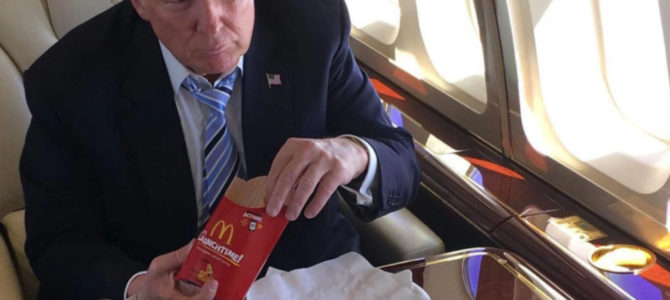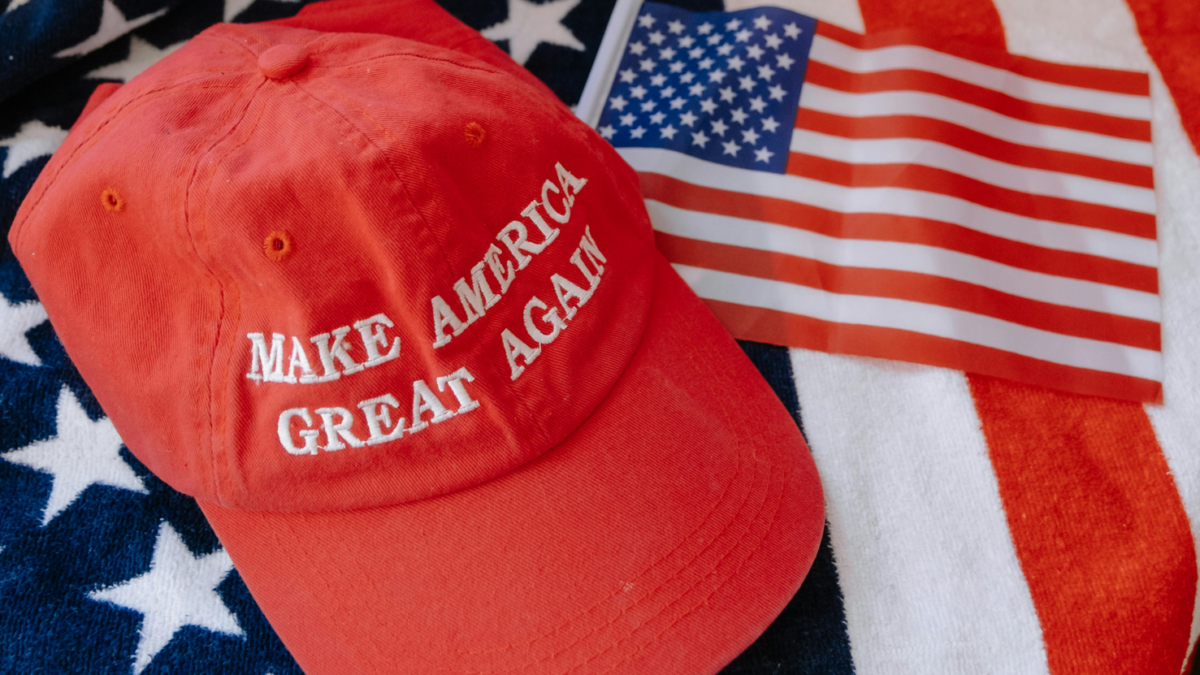Every morning, it seems, Donald Trump’s most determined opponents awake to find out what sort of obnoxious, fact-challenged, puerile, norm-breaking thing the president has said, and say to themselves, “Oh, that’s nothing. We can do something dumber than that!”
So the nation wades from one bizarre and nonsensical controversy to another. As I write this, I can’t even recall what topic we were debating last week, but I’m certain it was idiotic. Part of the problem is that those who drive coverage of Trump are obsessed with the president in unhealthy ways; ways that have absolutely nothing to do with policy or governance.
For a couple of weeks now, our self-styled guardians of democracy have engaged in a concocted controversy about the president’s mental state. It wasn’t only liberal columnists plying their readers with this wishful thinking, but the entire city of Washington, according to Politico, was consumed with using the Twenty-Fifth Amendment to remove the president. It was a major topic of conversation on the Sunday shows. Former Trump-booster Joe Scarborough squeezed a week of coverage out of it.
So when the president’s physician, Ronny Jackson — a man who has been the White House doctor for six years — explained yesterday that Trump was, in fact, “very healthy” and has “incredibly good genes” and excellent cognitive health, the White House press corps was in disbelief. I mean, Michael Wolff had told us the opposite was true. One reporter asked why Trump “appeared to slur his words” at a recent press conference. Another reporter asked why Trump had the “sniffles.” Everyone was worried about his insalubrious meal plans. “Is he limited to one scoop of ice cream now?” a real reporter asked the presidential doctor.
Jonathan Karl of ABC asked, and I kid you not, “Can you explain to me how a guy that eats McDonald’s and Kentucky Fried Chicken and all those Diet Cokes, and who never exercises, is in as good of shape as you say he’s in?” Jackson, confirming what everyone in the world who eats right and exercises daily and still struggles to keep his weight down already knows, answered: “It’s called genetics.”
More importantly, the doctor also said Trump had passed an extensive cognitive exam that tests for “all those things,” and repeated the conclusion that the president doesn’t suffer from mental issues.
So the conspiracy theories began. Not by random tweeters, but by White House correspondents for the nation’s leading newspapers and leading reporters for the nation’s biggest networks.
Reminder that earlier physicals decades ago put Trump height at 6’2”. The 6’3” height makes a difference on his BMI from overweight to obese https://t.co/iHIsJjustT
— Maggie Haberman (@maggieNYT) January 16, 2018
Seeing a lot of skepticism over the idea that @realDonaldTrump weighs only 239 pounds. Would he step on a scale in public to prove it?
— Ken Dilanian (@KenDilanianNBC) January 16, 2018
Yesterday, Dr. Sanjay Gupta, CNN’s Chief Medical Correspondent and former Hillary advisor, asked Jackson, the doctor who actually examined the president, if Trump had heart disease. Jackson said no. Today on television, Gupta claims that Trump does have heart disease. (It took a little more than one year to go from ‘’Russia stole the election!’ to ‘Trump is too fat to be president.’ Those 15-20 pounds are a killer.)
Others decided to go in a different direction, though, they too moved the goalposts.
Here’s how the next few hours will go. Trump supporters will say “Concerns about Trump’s mental health were always absurd. Case closed now.” The obvious response: “The Q’s about fitness for office are serious. Someone could be sharp as a tack, but still unfit”
— Brian Stelter (@brianstelter) January 16, 2018
Stelter’s comment is true, even if his position is hypocritical. There is simply no way we would have gone through a similar round of frenetic mental-health coverage if the president had a D next to his or her name. Yes, a person can be cognitively sharp yet unfit for the office. But here’s the problem: Many journalists, including Stelter, spent the past week baselessly speculating about the mental health, not the overall fitness, of the president. They did so based on their intuition and hopes, rather than any genuine evidence. “We’re just asking questions” is the sort of thing birthers tend to say. Be better than the birthers.
Just because the president speaks in a manner alien to the DC press doesn’t mean his mental facilities are in trouble. The fact that a neophyte president doesn’t understand the intricacies of policy is troubling, but it doesn’t mean he’s intellectually incapable of doing his job. Just because Trump’s comments are often coarse or ugly doesn’t mean he’s cognitively impaired.
More significantly, the truth is that there are a bunch of people in this country who don’t really care about Trump’s mental health, the future of democracy, the decorum of the office, the Constitution, collusion, or the truth. They’re personally insulted by the outcome of the last presidential election, and happy to embrace any story that helps them try to overturn it. Some of them, I’m positive, are hopeful that Russian interference changed votes so they can continue to spin their tale of a stolen election.
These folks, as Michael Graham has pointed out, are often Trump’s greatest gift. The day-to-day drama is often brought on by the president’s words, which are sometimes ugly and often self-destructive. Much of it, though, is exacerbated by his adversaries, who are ridiculous in their own special ways.
Anyway, on to the next nonsensical controversy.







